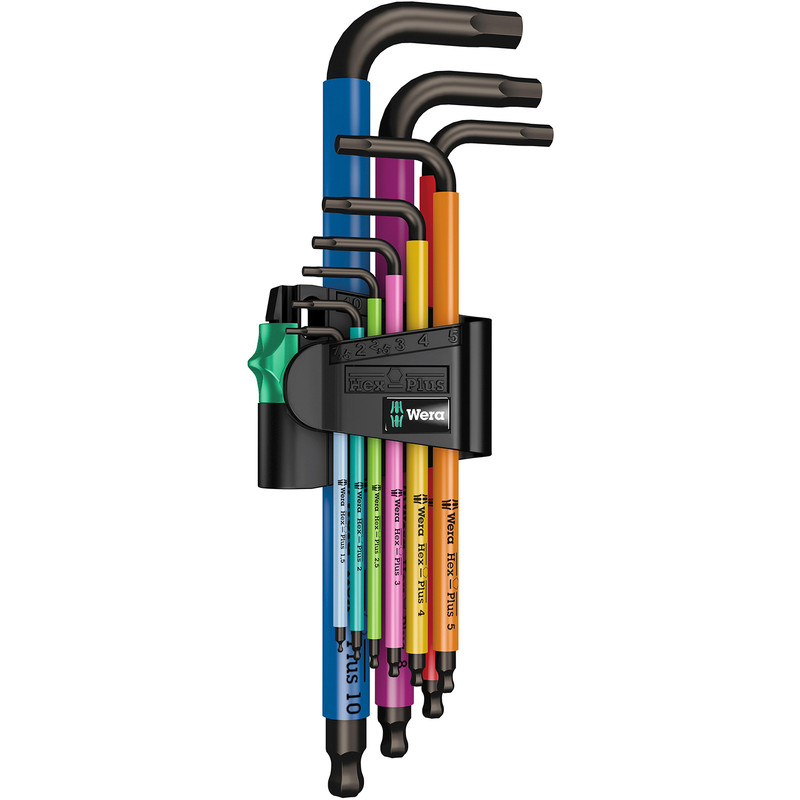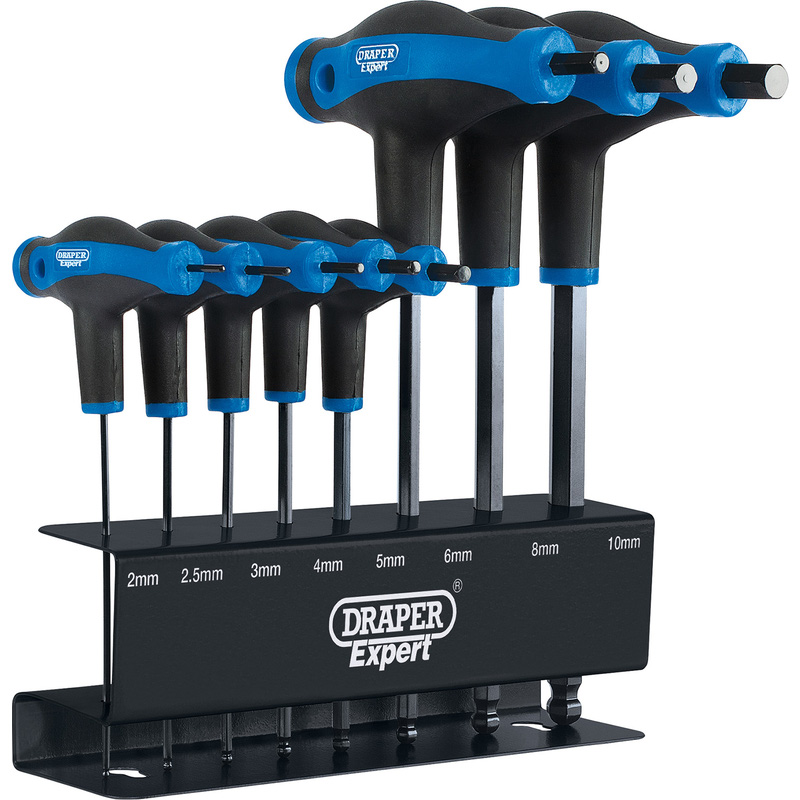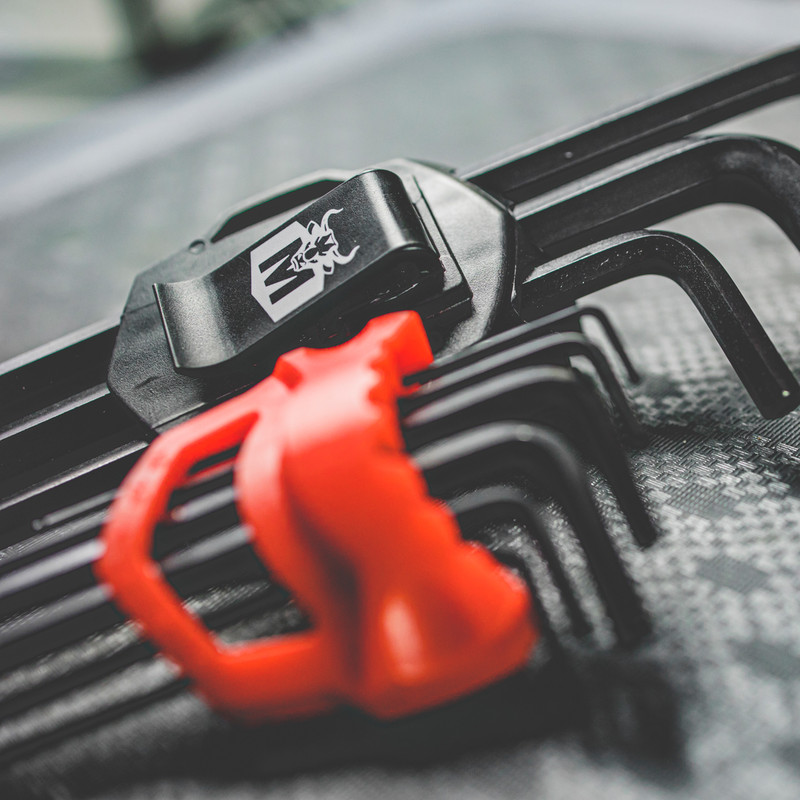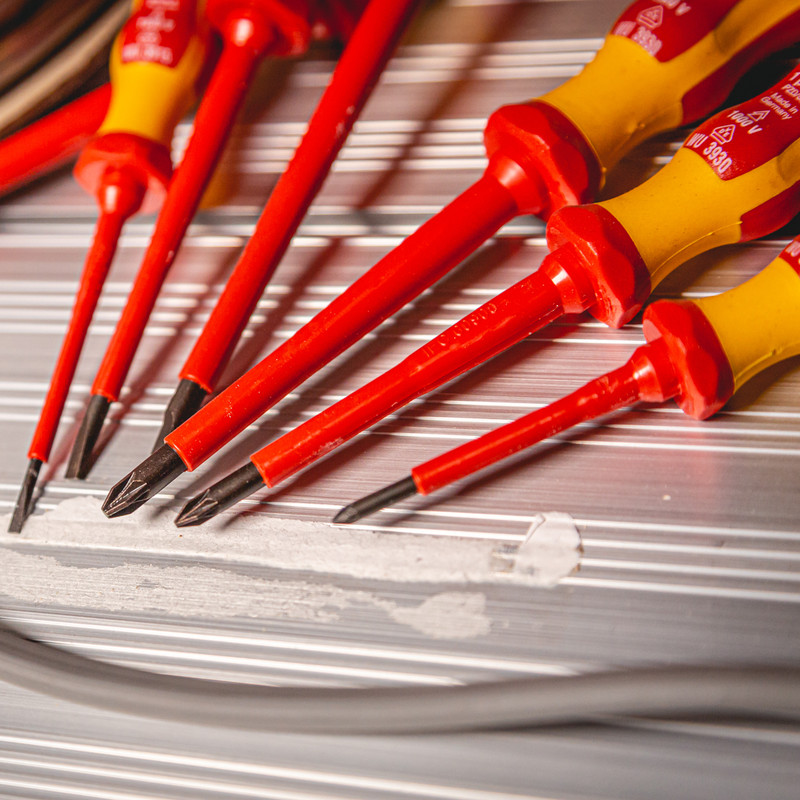- Help & Advice
- Buying Guides
- Hex Key Buying Guide
Hex keys, sometimes called hex wrenches, are a small and unassuming handheld tool which takes on a variety of different shapes and sizes. Their specific purpose is to tighten or loosen screws and bolts of a hexagonal shape.
Hex keys are of a very simple design being one solid piece of metal which starts off in the shape of a rod. Often manufactured from steel, aluminum or chrome vanadium, it’s then bent into shape and sometimes case-hardened to improve longevity and durability.
Sometimes L shaped hex keys are supplied with things like flat-pack furniture as part of their assembly packs and that’s because they’re cheaper to supply when compared to screwdrivers. However, these are often of a lower quality and don’t offer features like plastic handles which can improve grip and comfort.
In this guide we’ll be covering the different types of hex keys you can choose from along with their uses both in and out of the home.
Different Types of Hex Keys

Ball End Hex Keys
A ball end hex key, sometimes referred to as ball point hex keys, have a unique shape and can be distinguished by the end which is in the shape of a ball as opposed to having a flat hexagonal shaped head.
Compared to other types of hex keys, they allow for greater freedom of movement and manoeuvrability and that’s because the circular end can be inserted into its fixing point at different angles. This makes them more versatile where they can be helpful when you need to access awkward spaces and narrow gaps.
The difference in their design and more complex manufacturing process means they tend to carry a higher price tag. It’s also important to note that they can have less torque when compared to hex keys with flat ends, and that’s due to having less surface contact so they may not be the best choice for loosening off particularly tight screws or fixings.
Advantages
-
More versatile
-
Useful for hard-to-reach places
Things to Consider
-
Can be more expensive to purchase
-
Limited amount of torque

T Handle Hex Keys
As its name suggests, a T-handle hex key is noted by the T shape design. They feature a plastic ergonomic handle making it easier and more comfortable to grip. What’s more, the improved grip can allow for better leverage which means greater torque, so loosening and removing very tight bolts is a breeze.
You’ll find they’re much easier to use and far less fiddly, as you can turn the handle more like a screwdriver. This makes them perfect if you’re planning to work on high-volume projects with lots of fixtures that need removing or replacing.
Keep in mind that the handles are often quite large and while this makes them comfortable to hold, they’re not always ideal for narrow or awkward spaces. You’ll want to take a bit of extra care when using a t-handle hex key as the better leverage you’ll get can increase the risk of over-tightening which could potentially cause damage to the key or fixture.
Advantages
-
Comfortable and easy to use
-
Greater leverage, ideal for removing extra-tight screws and bolts
Things to Consider
-
Risk of over-tightening without proper care
-
Not the best option for smaller gaps due to handle size

L Shape Hex Keys
The L shaped hex key is far and away the most common type of hex key you’ll find. They’re readily available, inexpensive to purchase, and in many cases are provided as part of assembly packs with products such as shelving, cupboards and even things like bicycles.
They’re of a very simple design with the benefit of being able to utilise either end to tighten or loosen screws. The shorter end is ideal if you need to access hard-to-reach gaps and small spaces, whereas the longer end provides more leverage making it perfect to loosen off stubborn screws that are hard to shift.
You’ll likely notice that cheaper L shape hex keys can be very lightweight which could make them a little more tricky to use, this is especially true of hex key sets supplied as part of assembly kits. Their lack of a proper grip may result in discomfort to your hands and fingers, particularly when working on larger DIY projects.
Advantages
-
Lower cost compared to other types
-
Can use either end to tighten / loosen fixings
Things to Consider
-
Lightweight keys can be more fiddly to use
-
Lack of handle may make them more uncomfortable

Folding Hex Keys
Folding hex keys offer the convenience of housing a full set of keys in a small compartment. Their handy portability makes them convenient for carrying around or popping into a toolbox making them a good choice for tradespeople and those working on site.
Easy to use, folding hex keys simply fold out of their handle with some models featuring an ergonomic style grip making them more comfortable to use. They’re also available in a range of different sizes with ends in either the standard hexagonal shape or with a ball end. One of the main benefits of folding hex keys is you can use them in a straight line or at a 90-degree angle for increased leverage.
Keep in mind that over time, and with lots of use, you may notice that the keys become loose within their housing so could require a little maintenance to tighten them back up. Keys with chunky housing can be limited in terms of clearance so not always practical for tight or awkward spaces.
Advantages
-
Housing improves portability
-
Can be used in multiple positions
Things to Consider
-
Keys may become loose over time
-
Large housing can limit clearance
Key Hex Key Features
Hex Key Size
Hex keys come in a variety of sizes with most common sizes ranging from 1.5mm up to 14mm. On the odd occasion you’ll come across hex keys in imperial measurements but these are much less common nowadays. The most important thing here is to use the correct size to match the screw or bolt. A hex key that’s too small simply won’t work and, on the other hand, a key that’s too large runs the risk of damaging the key or the fixture.
Hex Key Material
Pretty much all hex keys are made from metal, but not all metals are the same! If you want high-quality hex keys that will stand the test of time, choose chrome vanadium, a rust-resistant strong alloy. On the other hand, if you’d prefer something with a lower price tag consider keys made from steel or aluminium. While they don’t offer the same durability, this budget-friendly alternative can be ideal for odd jobs around the home.






